Categories
New Blog
Tags
In capsule production, the capsule filling machine is a key piece of equipment that directly affects production efficiency and product quality. However, even the most advanced machines are prone to various issues over time. These problems can lead to downtime and affect capsule yield. Knowing how to troubleshoot common faults is essential for maintaining smooth production and minimizing machine stoppages. This article focuses on the common issues with capsule filling machines and explores their causes and solutions in detail.
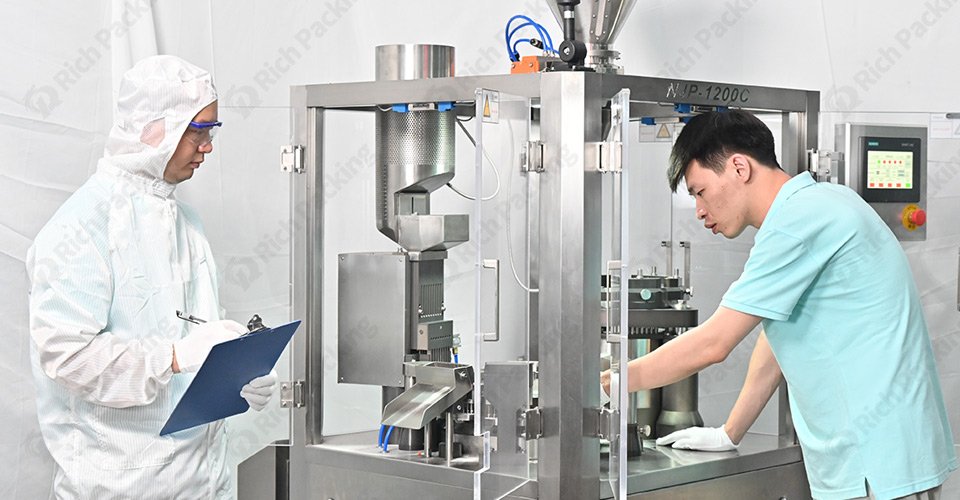
Overview of Common Capsule Filling Machine Issues
The most frequent problems in capsule filling machines include capsule breakage, inconsistent fill weights, improper capsule closure, and powder leakage or clogging. Each of these issues can disrupt the production line differently, and if not addressed promptly, they can lead to product rejection and financial loss.
Here’s a quick overview of common issues and their impact:
|
Issue Type |
Possible Cause |
Impact |
|
Capsule breakage |
Poor capsule quality, excessive pressure |
Decreased yield, production stoppages |
|
Inconsistent fill weight |
Faulty dosing system, poor powder flow |
Product non-compliance with pharmaceutical standards |
|
Improper capsule closure |
Misaligned tooling, capsule size variation |
Leakage of contents, affecting appearance and quality |
|
Powder leakage or clogging |
Clogged feeding system, high powder humidity |
Production interruptions, increased machine wear |
Capsule breakage is a common problem in capsule filling machines. The primary cause of capsule breakage is either poor-quality capsule shells or improper pressure settings during machine operation. During the filling process, capsules must withstand a certain amount of pressure to complete filling and sealing. If the capsule material is too fragile or if the machine pressure is too high, the capsules are prone to breaking.
Solution:
- Check capsule quality: Use high-quality capsule shells from reliable suppliers to ensure they have enough strength to endure the filling process.
- Adjust machine pressure: Regularly check and fine-tune the pressure settings to avoid applying excessive pressure that may cause the capsules to break.
- Align tooling properly: Ensure the machine’s tooling is aligned correctly to prevent capsule breakage due to misalignment during the filling process.
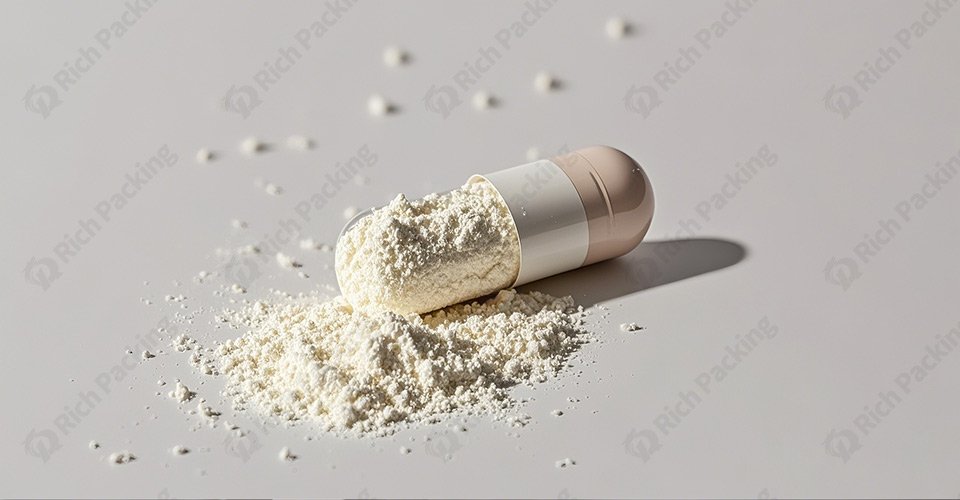
Inconsistent fill weight directly affects the dosage of the capsules, impacting product compliance. This issue is usually caused by faulty dosing systems, poor powder flow, or variations in powder granule size. If the dosing disk is not properly calibrated, the powder may not be evenly distributed into the capsules, leading to overfilled or underfilled capsules.
Solution:
- Calibrate the dosing system: Ensure precise calibration of the dosing disk before each production run to maintain accuracy in fill weights.
- Improve powder flowability: Check whether the powder has sufficient flowability and is granulated correctly. If not, pre-treat the powder to improve its suitability for filling.
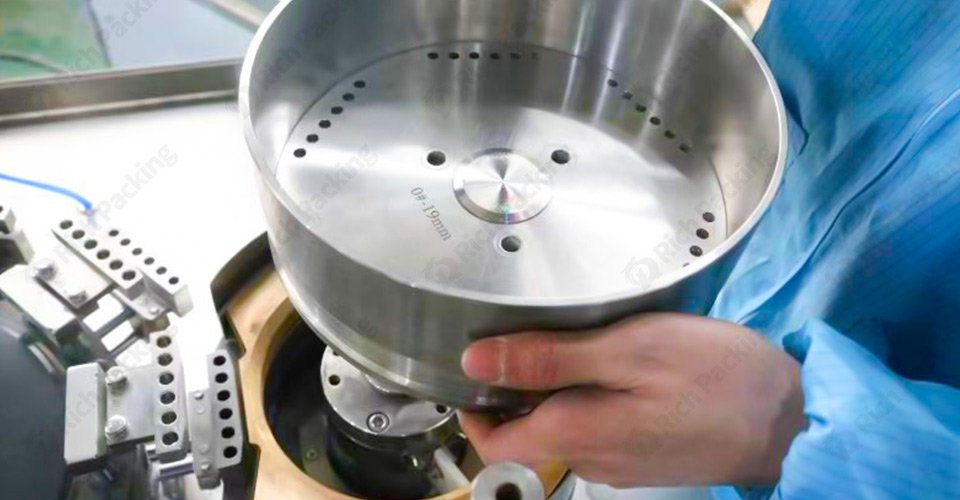
Improper capsule closure typically results from misaligned tooling or variations in capsule size. When the capsule body and cap are not properly matched, or if the machine’s tooling is not perfectly aligned, capsules will not close correctly, leading to content leakage and substandard products.
Solution:
- Ensure consistent capsule sizes: Use high-quality capsules with uniform dimensions to guarantee proper closure during the filling process.
- Realign tooling: Regularly check and adjust the tooling in the machine to ensure it is aligned properly to avoid closure issues.
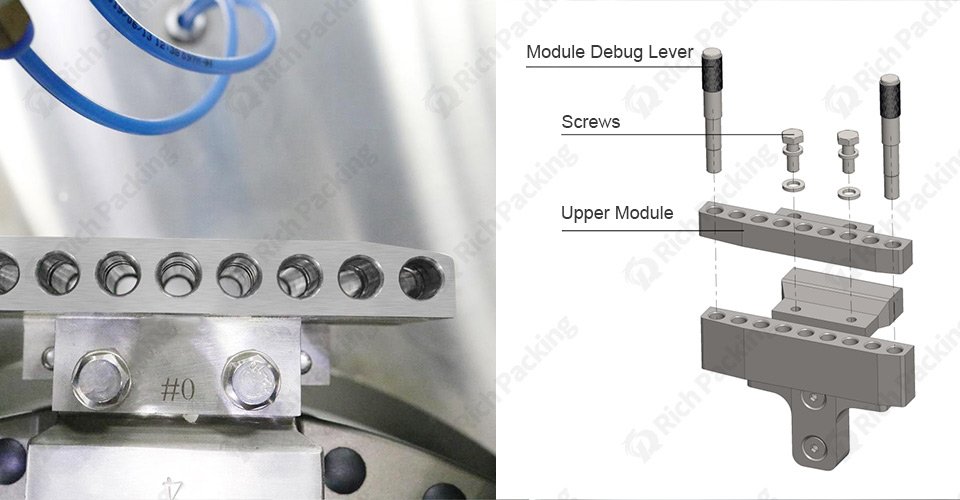
Powder leakage or clogging is another frequent issue. If the powder being used is not uniform in granule size or has excess moisture, it can clog the feeding system. Clogged feeding systems not only reduce efficiency but can also lead to incomplete capsule fills or powder spilling out during filling.
Solution:
- Clean the feeding system regularly: Prevent blockages by cleaning the feeding system frequently to ensure smooth operation.
- Control powder moisture content: Ensure the powder is dry enough to flow freely by controlling its moisture levels. If necessary, use dehumidifying equipment in the production area.
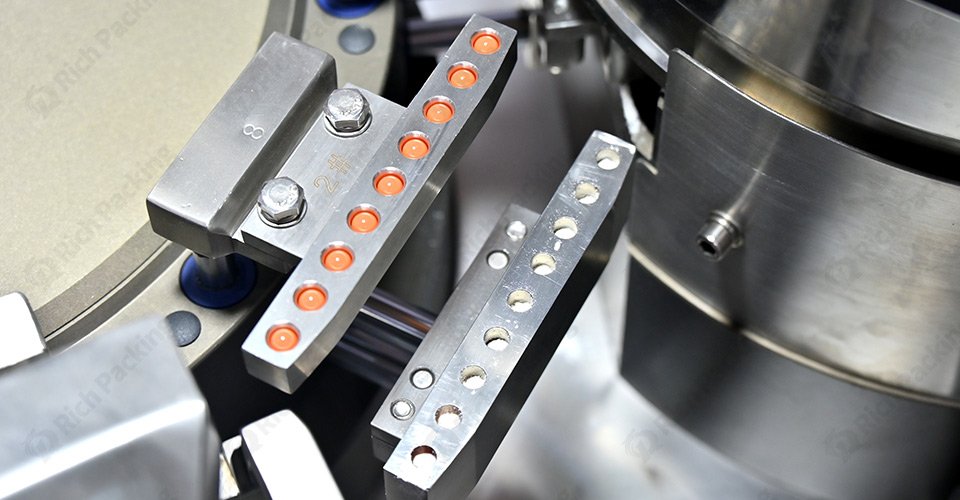
Capsule filling machines are essential for pharmaceutical production, but any malfunction can disrupt production and compromise product quality. Understanding the common problems and their solutions, along with regular maintenance, can greatly enhance the machine’s performance and reduce downtime. Each company should develop a comprehensive maintenance plan to ensure long-term efficiency and reliability of their capsule filling equipment. This will not only minimize machine stoppages but also boost the overall productivity and competitiveness of the production line.